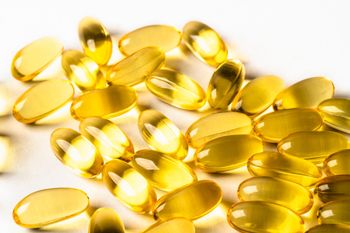
Cocoa Supplement and Multivitamin Outcomes Study (COSMOS) results have been published
The randomized, double-blind, placebo-controlled, two-by-two factorial trial investigated cocoa flavanol supplementation and multivitamins for the prevention of cardiovascular disease (CVD) and cancer among 21,442 U.S adults free of major CVD and recently diagnosed cancer.
The results of the Cocoa Supplement and Multivitamin Outcomes Study (COSMOS) have been published in The American Journal of Clinical Nutrition. The randomized, double-blind, placebo-controlled, two-by-two factorial trial investigated
Subjects were randomized to one of four study arms: 1) active cocoa extract (two capsules per day 500 mg/day of the flavanols, including 80 mg (–)-epicatechins) and active multivitamin, 2) active cocoa extract and multivitamin placebo, 3) active multivitamin and cocoa extrac placebo, or 4) both placebos. The intervention phase was between June 2015 and December 2020.
For the cocoa extract intervention1, primary outcomes was a composite total CVD outcome including incident MI, stroke, coronary revascularization, cardiovascular mortality, carotid artery surgery, peripheral artery surgery, and unstable angina requiring hospitalization. The secondary outcome was the combination of total CVD and all-cause mortality. Results showed that during a median follow-up of 3.6 years, 410 participants taking the cocoa extract and 456 taking placebo had confirmed total cardiovascular events. Supplementation with the cocoa extract did not significantly reduce total cardiovascular events, but did reduce CVD death by 27%, warranting additional research.
For the multivitamin intervention2, primary outcomes were total invasive cancer, excluding non-melanoma skin cancer. Secondary outcomes included major site-specific cancers, total CVD, all-cause mortality, and total cancer risk among those with a baseline history of cancer. During a median follow-up of 3.6 years, invasive cancer occurred in 518 participants in the multivitamin group and 535 participants in the placebo group. No significant effect was observed for daily multivitamin supplementation on breast cancer, but a protective effect of daily multivitamin supplementation on lung cancer was observed. Daily multivitamin supplementation did not significantly reduce CVD outcomes, with composite CVD outcomes occurring in 429 participants in the multivitamin group and 437 participants in the placebo group. Nor did multivitamin supplementation significantly affect all-cause mortality.
“As the leading association for the dietary supplement and functional foods industry, CRN applauds this new supplement research that paves the way to improved understanding of the role nutrition plays for human health. The Cocoa Supplement and Multivitamin Outcomes Study (COSMOS) is exactly that kind of research,” commented Steve Mister, president and CEO of the Council for Responsible Nutrition (CRN; Washington, D.C.), in a press release. “As an association, we’re proud that two of our member companies, Mars and GSK, were cornerstones in the public-private partnership that supported this research. The cocoa flavanol supplementation’s findings noted beneficial trends in regard to cardiovascular events. As an industry dedicated to supporting consumers’ health and wellness, we were excited to learn these findings indicate bioactives such as cocoa flavanols show promise for reducing the risk of cardiovascular disease.
“The promise cocoa flavanol shows for reducing cardiovascular disease warrants more study and follow-up time,” Mister continued. “Groundbreaking research like COSMOS and future research on bioactives like flavanols are the types of science that will propel innovation for the supplement industry and push forward the possibilities in supporting consumers’ health. As always, CRN encourages consumers to speak with their healthcare providers about the measures available for reducing their risk of cardiovascular disease, including a well-balanced diet, regular exercise, and getting sufficient sleep.”
Reference
- Sesso HD et al. “Effect of cocoa flavanol supplementation for prevention of cardiovascular disease events: The COSMOS randomized clinical trial.” The American Journal of Clinical Nutrition, Published online ahead of print on March 16, 2022.
https://doi.org/10.1093/ajcn/nqac055 - Sesso HD et al. “Multivitamins in the prevention of cancer and cardiovascular disease: The COSMOS randomized clinical trial.” The American Journal of Clinical Nutrition, Published online ahead of print on March 16, 2022.
https://doi.org/10.1093/ajcn/nqac056
Newsletter
From ingredient science to consumer trends, get the intel you need to stay competitive in the nutrition space—subscribe now to Nutritional Outlook.





